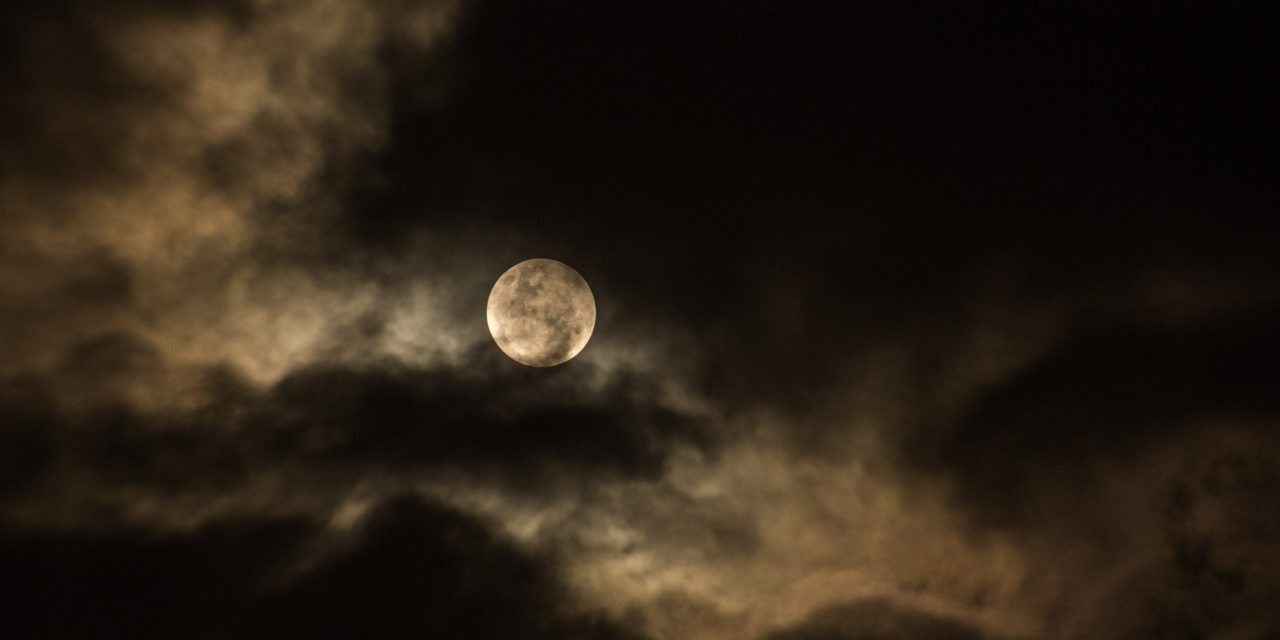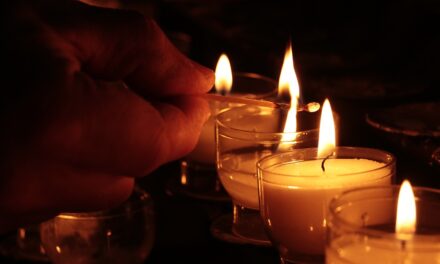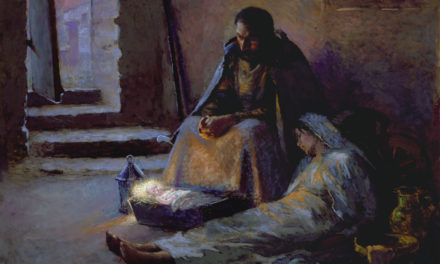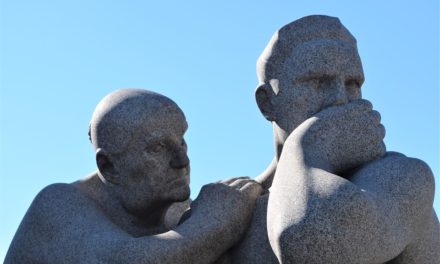It was black in my head. Not dark: I know dark from 40 years with it—the shadows at the corners of my eyes, the heaviness that weighs down every movement. No, this was black, as in immobilizing, as in my body on the futon could do nothing but breathe, shallowly.
At least the immobility kept me from the knives in the kitchen. But I still had to make it through. My mind cast about for anything that might feel not black. It settled on I’m alive. I expected no results and certainly no response.
The response came anyway. Alive is good.
Suddenly I had a handhold.
* * *
I take things to extremes. Everything is black or white, all or nothing. No wonder I became a teenage fundamentalist: it was a religion that looked like me.
So did my version of gratitude. Early on, like many children, I was taught to say thank you. To my literal mind, that meant gratitude wasn’t complete till the words thank you were said. After every Christmas I began my thank-you note to my godparents Dear Aunt Doris and Uncle Jack, Thank you very much. The very much had to be in there too or the thanking hadn’t really taken place.
None of this ever told me what thankfulness was. It was a recitation, a tic like the American custom where we go round the Thanksgiving table and mumble what we’re thankful for.
I think I was thankful for alive is good, but I never said the words.
* * *
Every day after meditation, I bow to three images on my wall. One is St. Thérèse, the nun from Normandy. She and I go way back. Her mental health was complicated, like mine. Her life left barely a trace, like mine, or it would have done except she wrote her life story and it became a treasure of Catholic mysticism. It’s not for everyone—the ardency of a young woman wildly in love with Jesus—but her words shimmered in my heart long after I read them.
These words, for example: “Jesus does not require great actions from us, but only surrender and gratitude.”
The first time I read this it stopped me cold. I’ve tried to live by it ever since, at least the surrender part. Surrender I get: God (I think it’s God, but who can tell?) has been nudging me off the conventional track for many years now and I’m like Thérèse, too much in love to resist.
Surrender I get. Gratitude is fuzzier.
* * *
Alive is good didn’t get me off the futon. But it did inch the process along. Something about the source of the words made a difference. The way I saw it—the way I knew it—they were not cognition. They were gift.
I’ve been getting these gifts since my fundamentalist days. The success of my business, which healed the very wounds of childhood that should have torpedoed it. The book about monks, pulled off the library shelf as an afterthought, that introduced me to God afresh.
Or the jewels of wisdom wrapped in the dark—in the decades of depression, the fiddling with pharmaceuticals, the wondering how I could get out of bed on any given day.
* * *
Dark is a lousy wrapper, and I had my chance to throw it away, at a healing service once. I could have asked for prayer to be cured of the dark. I could have walked over to the pastor and let him pray over me.
But I didn’t. I didn’t because I was a writer and the writing was gift— the most precious gift I’d ever received— and just maybe the writing and the mental illness were inseparable. I knew that much, or suspected it at least, and I couldn’t risk it.
I didn’t say thank you then either, not for the writing, not for the dark. I just claimed ownership: quietly picking them up, thinking this is mine, this is blessedly mine, and leaving the building.
* * *
This morning I sat in prayer with no energy, as usual, and energy came to me. A spark of response floated heavenward and that was as close to thank you as I needed to get.
Which makes me wonder about my very first response to alive is good: a tiny release, a small lifting of the blackness, a catch in the breath. I always thought of it as a glimmer of hope. Now I wonder if it was gratitude too.
I bet Thérèse would say so. “For me,” she wrote, “prayer is a movement of the heart; it is a simple glance toward Heaven.” If prayer is just a glance, gratitude could be too. No thank you necessary.
* * *
I know. You have to say thank you or the other person won’t feel thanked. It greases the wheels of friendship, makes everything move in sync. So we do our children a favor by teaching them please and thank you. All of that is true.
But there’s a difference between being true and being the whole truth. Saying thank you is not the sum total of gratitude any more than the real estate contract is the house. We need the words sometimes but they’re a pale imitation of the deepest thing.
My wife taught me this years ago. I’d given her an anniversary gift, knowing it was perfect for her. But she didn’t whoop with joy or smile or even say thank you, and my heart sank. It needn’t have. “When I am really happy,” she murmured, “I get really quiet.”
* * *
Maybe that’s the whole truth of it, or the deepest part anyway. Gratitude reflects the giver and receiver, as intimate as the first touch of foreplay. Maybe with Spirit it’s intimate to the point of wordless because Spirit is often wordless.
Jesus said something about wordlessness. When you pray or give to charity or fast for religious reasons, don’t make a big deal of it, he said. For heaven’s sake don’t broadcast it. With prayer, go in your room and shut the door and then start. Throughout that whole sermon, Jesus kept using one phrase to describe Spirit — “your Father who sees in secret.”
Secret. Intimate. Wordless. A simple glance toward Heaven. Gratitude goes from something you say to something you exude.

Originally published in Amethyst Review.






